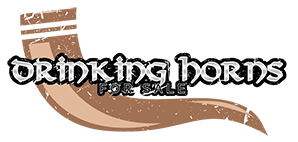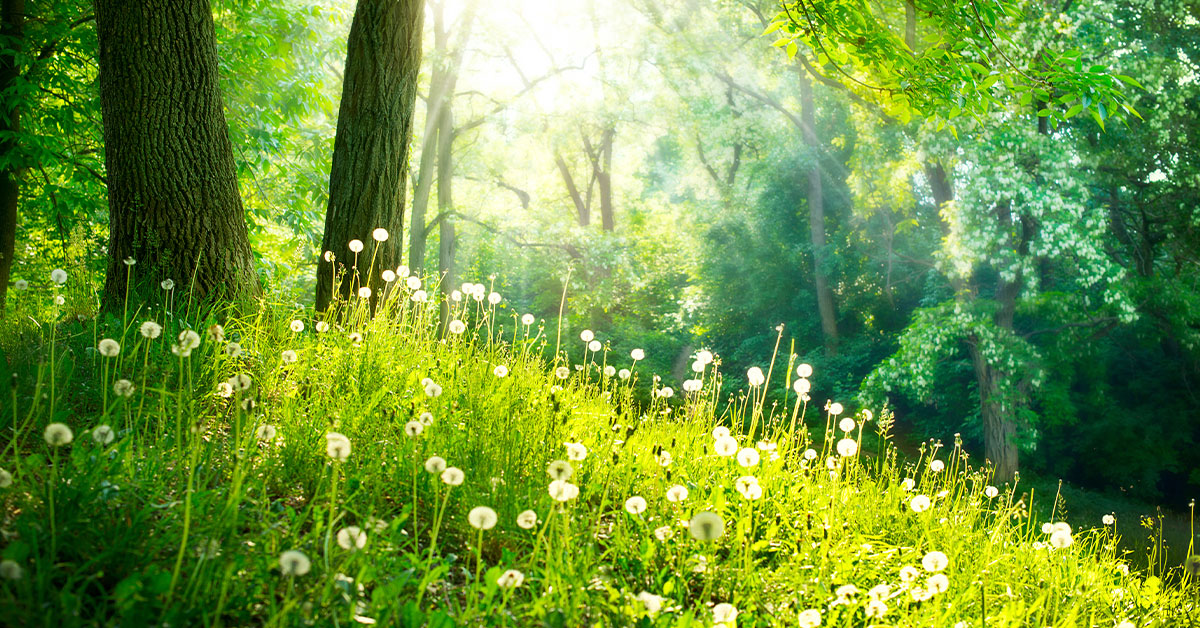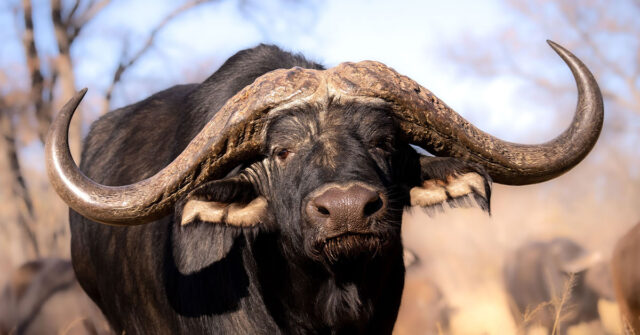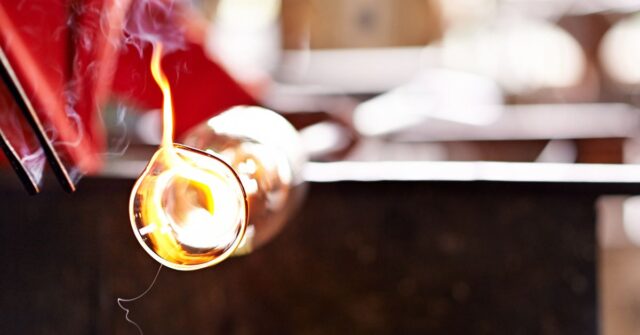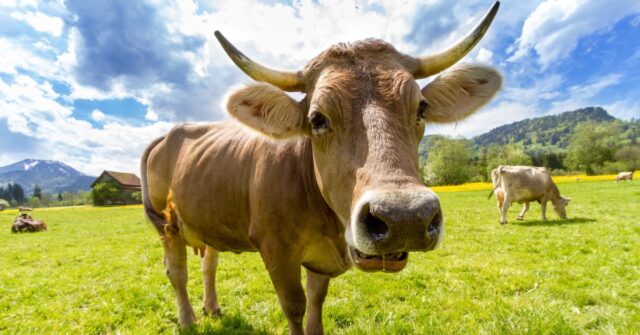In this comprehensive exploration, we delve into the intriguing world of drinking horns, assessing their environmental impact and biodegradability.
This analysis is designed for enthusiasts and potential buyers, offering factual insights into the sustainability of these historic and culturally significant items.
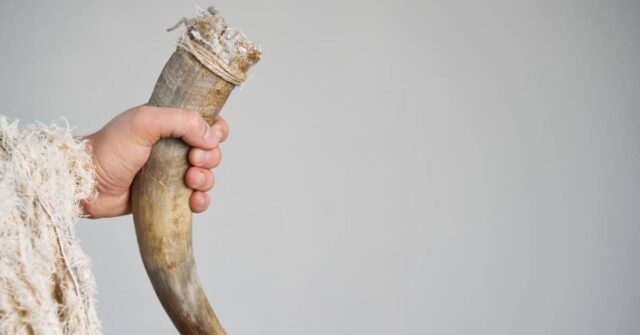
Introduction to Drinking Horns
Drinking horns have been a part of human culture for millennia, serving not only as practical vessels but also as symbols of status and tradition in various societies.
In this section, we explore their historical background and modern resurgence in popularity.
History and Cultural Significance
Originating in the Iron Age, drinking horns have been found in various cultures, from the Vikings to the tribes of Africa.
These horns were not just containers for liquids; they were also art pieces, often intricately carved and embellished to reflect the status of the user.
Modern Uses and Popularity
Today, drinking horns have found a new audience, admired for their rustic charm and connection to history.
They are popular in historical reenactments, fantasy-themed events, and even as unique barware in homes.
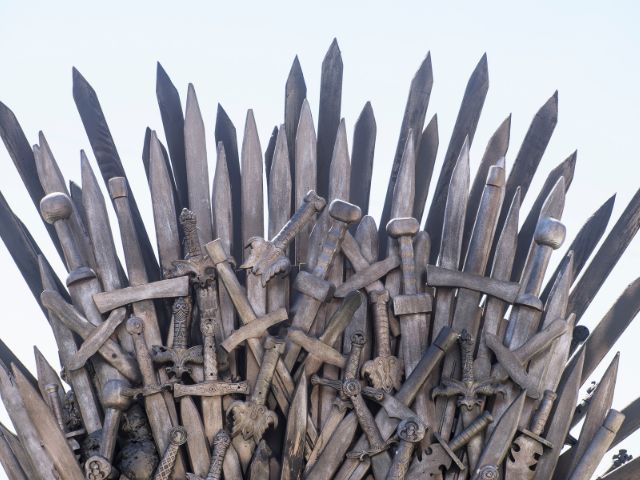
Understanding Biodegradability
Before diving into the specifics of drinking horns, it’s crucial to understand what biodegradability entails and its importance.
Biodegradability refers to the ability of materials to decompose naturally by biological processes, reducing environmental impact.
What Does Biodegradable Mean?
A material is biodegradable if it can be broken down by microorganisms, such as bacteria and fungi, into water, carbon dioxide, and biomass within a reasonable timeframe.
This process helps in minimizing waste and reducing the strain on landfills.
Importance of Biodegradability in Today’s World
In an era of increasing environmental consciousness, understanding and choosing biodegradable materials has become crucial.
Biodegradability helps in waste management and reduces environmental pollution, making it an essential consideration for sustainable living.
Materials Used in Drinking Horns
Drinking horns are primarily made from animal horns, but synthetic alternatives also exist. Each material has distinct characteristics influencing its environmental impact.
Natural Horns: Source and Characteristics
Natural horns are typically obtained from bovines, like cattle and buffalo. These horns are composed of keratin, similar to human nails, and are known for their durability and unique texture.
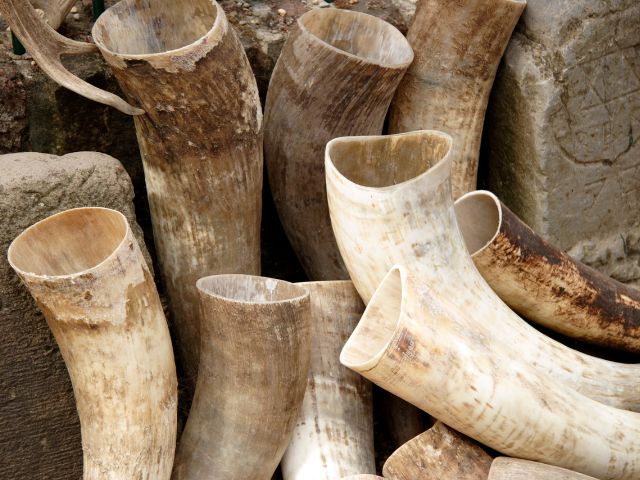
Synthetic Alternatives: Pros and Cons
Synthetic horns, often made from plastics or resin, are alternatives for those seeking cruelty-free options. While they mimic the aesthetic of natural horns, their environmental impact differs significantly.
Biodegradability of Natural Horns
Natural animal horns offer an interesting case study in biodegradability, owing to their organic origin and composition.
Composition and Environmental Impact
As natural horns are primarily keratin, they are biodegradable under the right conditions. However, their decomposition is much slower compared to other organic materials, often taking several years.
Decomposition Process of Animal Horns
The decomposition of animal horns in natural environments involves gradual breakdown by microorganisms.
However, this process can vary significantly based on factors like temperature, humidity, and soil composition.
Environmental Impact of Synthetic Horns
Synthetic horns, while offering ethical advantages, pose different challenges regarding biodegradability and environmental impact.
Chemical Composition and Longevity
Made from materials like plastic and resin, synthetic horns are not biodegradable. They can last for hundreds of years, contributing to plastic pollution and landfill waste.
Recycling and Waste Management Challenges
Disposing of synthetic horns is problematic, as they cannot be processed in standard recycling facilities. Their disposal contributes to the increasing burden on waste management systems.
Comparative Analysis
In comparing natural and synthetic horns, we consider their entire lifecycle and environmental impact from a sustainability standpoint.
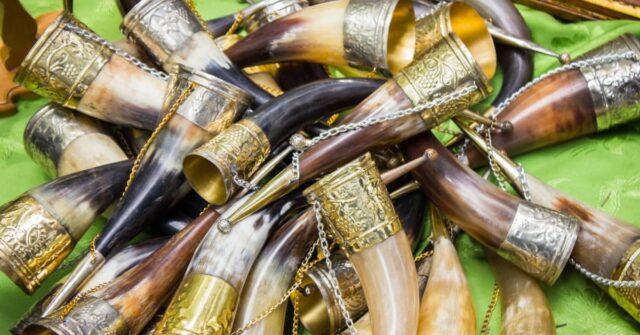
Natural vs. Synthetic: Sustainability Perspective
Natural horns, being organic, have a lesser environmental footprint in terms of biodegradability compared to synthetic options. However, ethical sourcing and animal welfare are concerns.
Life Cycle Assessment of Drinking Horns
A life cycle assessment (LCA) considers the environmental impact of a product from its creation to disposal. For drinking horns, this includes sourcing, manufacturing, usage, and end-of-life disposal.
Maintaining and Disposing of Drinking Horns
Proper maintenance can extend the lifespan of drinking horns, reducing their environmental impact. Disposal, especially of synthetic horns, requires careful consideration.
Best Practices for Longevity
To prolong the life of a drinking horn, regular cleaning, and occasional polishing are recommended. Avoiding exposure to extreme temperatures and harsh chemicals can also preserve its quality.
Eco-Friendly Disposal Options
For natural horns, composting is a viable option. Synthetic horns, however, pose a challenge; seeking specialized recycling facilities or upcycling them into art pieces can be considered.
Legal and Ethical Considerations
The production and sale of drinking horns are subject to various legal and ethical considerations, particularly concerning animal welfare and trade regulations.
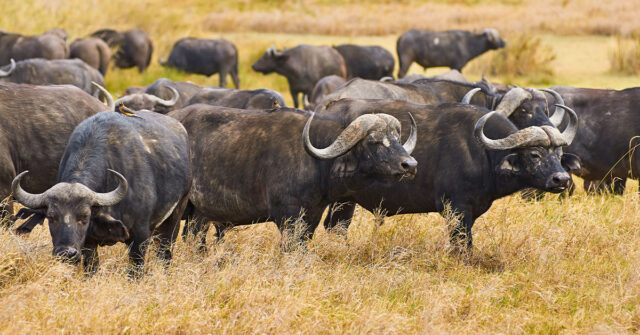
Regulations on Animal Horn Trade
International and local laws regulate the trade of animal horns to prevent illegal poaching and ensure sustainable practices. Consumers and sellers must be aware of these regulations.
Ethical Sourcing and Animal Welfare
Ethically sourced horns are obtained from animals that have died naturally or as a by-product of the meat industry. Ensuring ethical sourcing is vital for animal welfare and sustainability.
Conclusion and Recommendations
In conclusion, while natural drinking horns offer a more environmentally friendly option due to their biodegradability, ethical and legal considerations play a crucial role.
Synthetic horns, although not biodegradable, provide an ethical alternative but pose challenges in waste management.
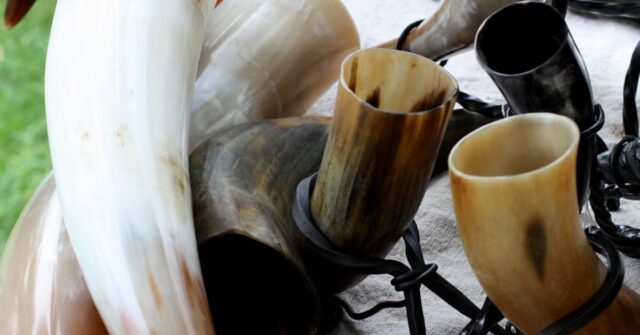
Choosing the Right Horn for Sustainability
For those committed to environmental sustainability, natural horns from ethical sources are recommended.
However, if animal welfare is a priority, synthetic horns are a viable alternative, keeping in mind their environmental impact.
Future Trends in Eco-Friendly Drinkware
The future of drinkware lies in balancing sustainability with ethical practices. Innovations in biodegradable materials and ethical sourcing are likely to shape the evolution of products like drinking horns.
